In Libya, the recovery of the universities is a priority objective
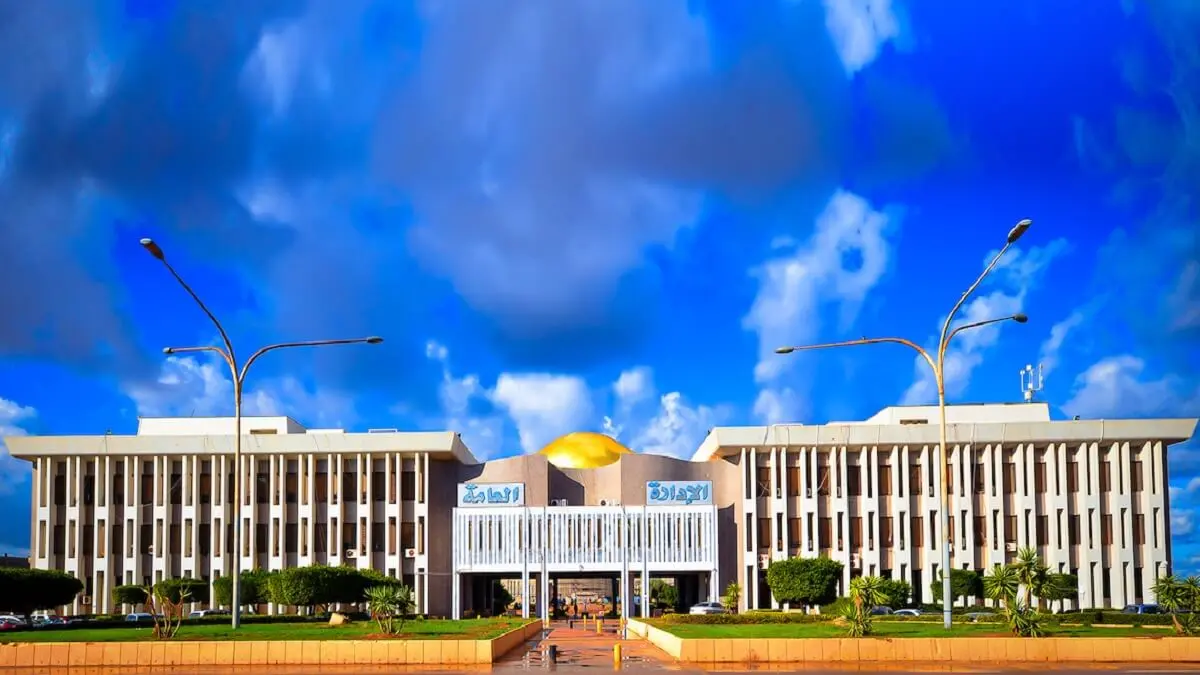
In the reconstruction of Libya after the war, the first thing that the Armed Forces led by Field Marshal Khalifa Haftar did, once the hospitals had been rebuilt, was to restart the universities thanks to the Development and Reconstruction Fund, approved by parliament, which is firmly committed to education.
And in this task of recovering its activity and completing its capacity with Libyan students and also from other countries, the University of Benghazi, about to conclude its total reconstruction after a huge amount of work, is seeking collaboration with foreign universities and, among them, they are seeking to strengthen academic relations with Spanish entities.
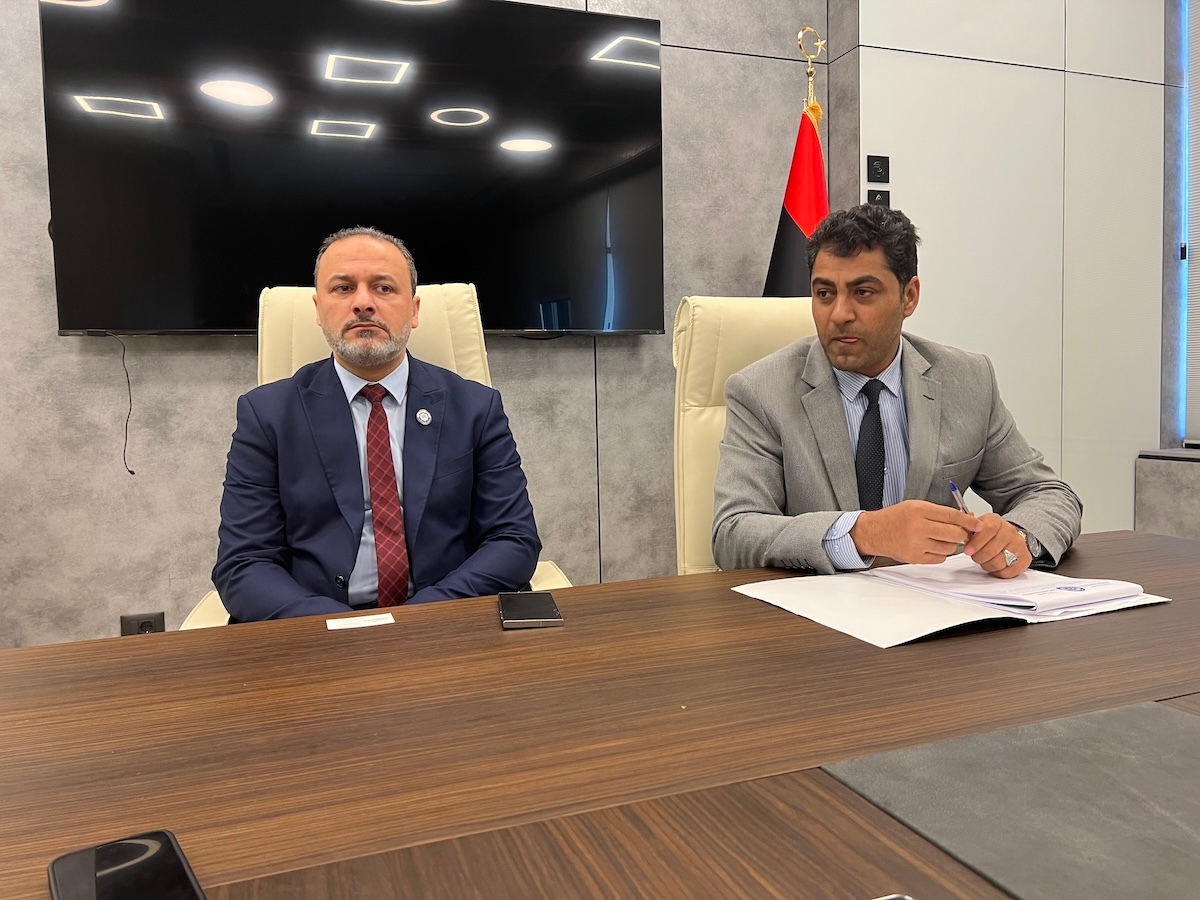
Haftar inaugurated the University of Benghazi in 2022, which opened its doors in 1955, so it is said to have been inaugurated twice. It is the oldest university in Libya and also the largest: it has 37 faculties, 70,000 students, 3,000 teachers and 6,000 civil servants.
The university offers grants to students with fewer resources and its classrooms are filled with Libyan students but also with students from other countries such as Morocco, Palestine and Sudan, who in this case study for free. There are also teachers from other countries teaching different subjects, one of the many riches offered by Libya's most important university.
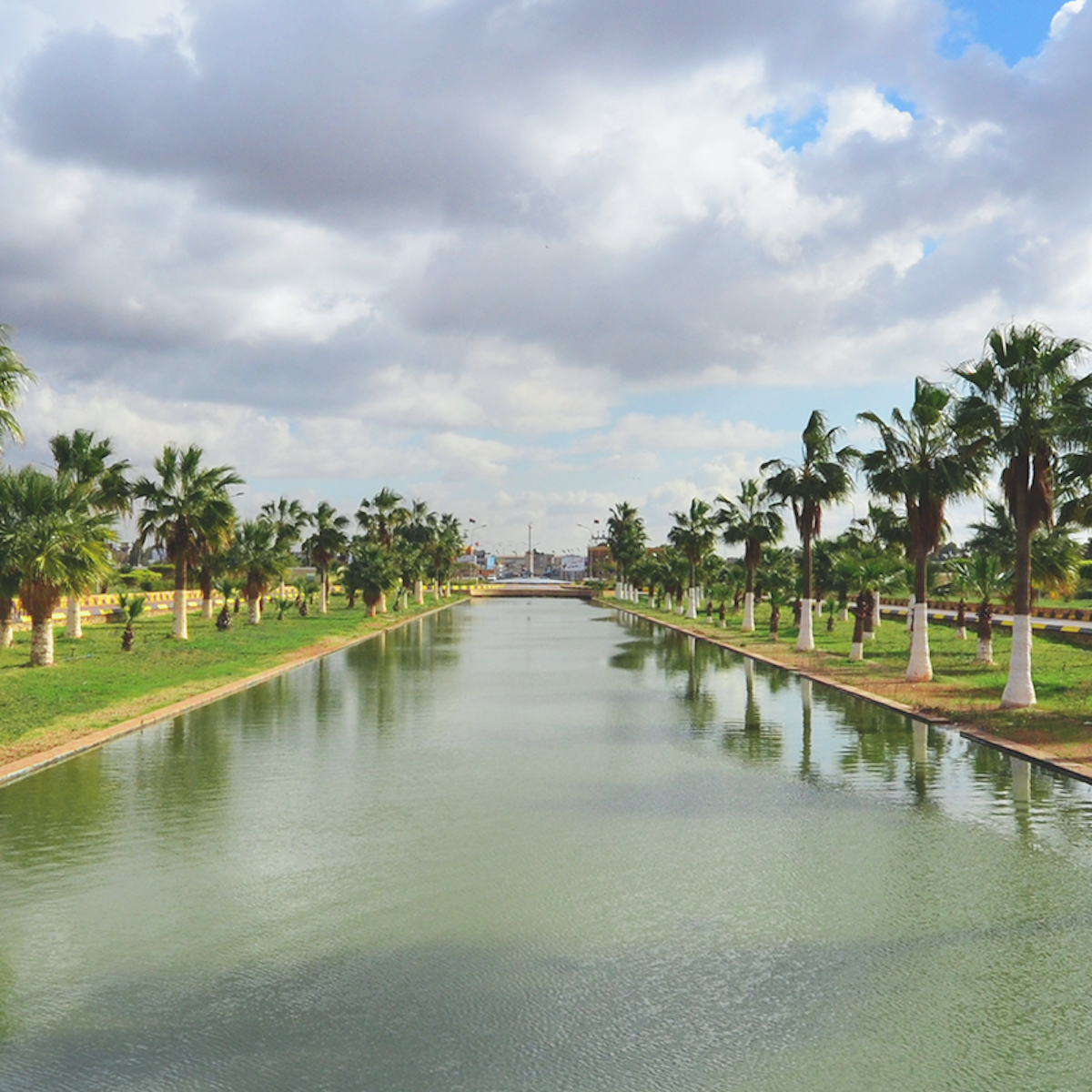
During the war it was attacked by armed groups, who set fire to it and stole the books from the Islamic Library, a thousand-year history that was only kept in Benghazi with the help of UNESCO.
The University is the heart of Benghazi
The president of the University of Benghazi, Ezzedin Younis Eddressi, tells a group of Spanish journalists that “they destroyed this university, considered one of the best in North Africa. We had to abandon the facilities and start giving classes in primary schools”.
Younis Eddressi assures that the University is the heart of Benghazi and all its members are scattered throughout the city. Marshal Haftar himself gave orders after the end of the war against the terrorists for the University to be the first reconstruction to be carried out with the Development and Reconstruction Fund. In five months they will have finished all the reconstruction.
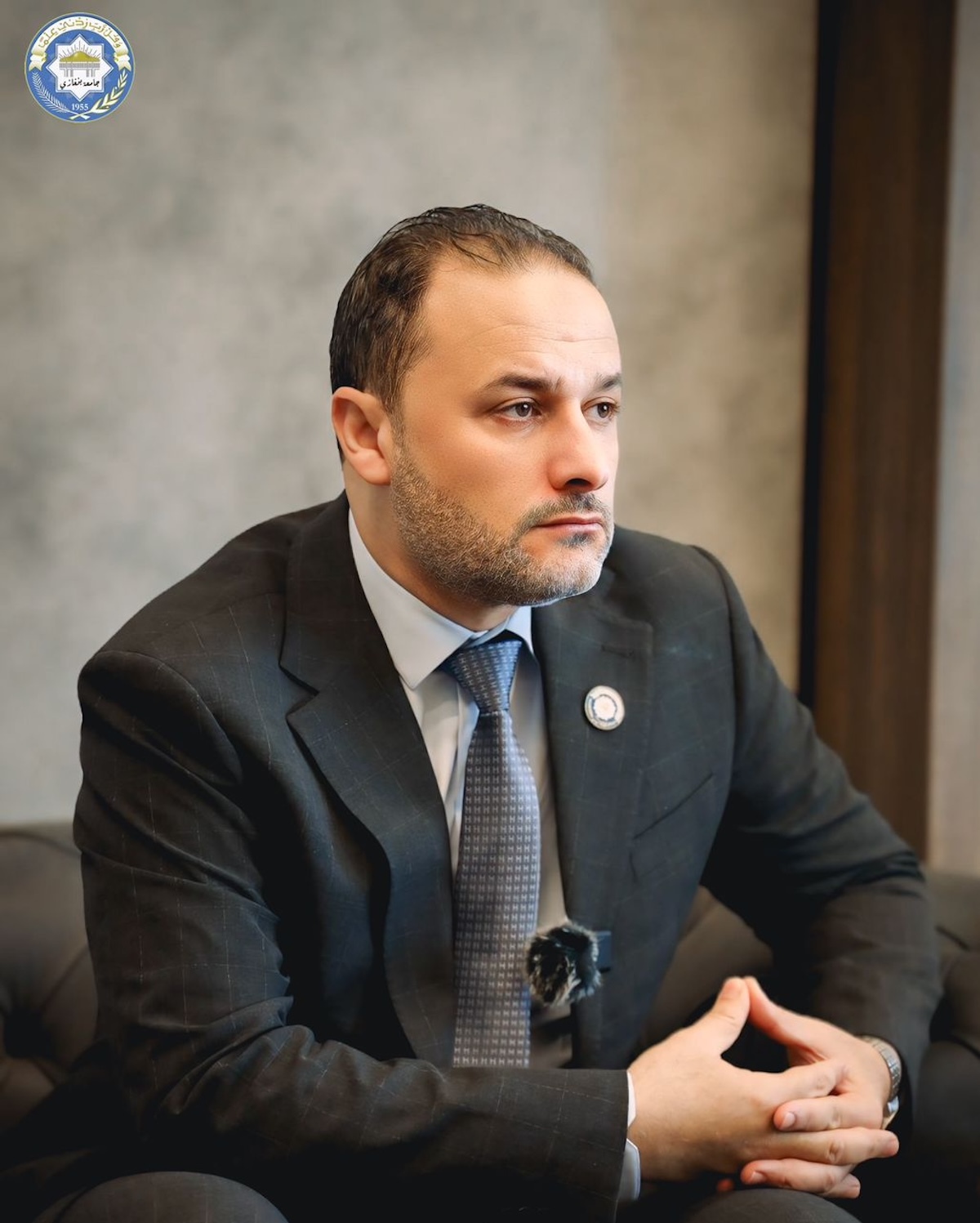
Classes in all faculties are to start in order to return to normality as soon as possible, including a conference hall. The head of the University of Benghazi emphasises that the Faculty of Medicine will be equipped with the latest advances so that graduating students have international accreditation.
The University of Benghazi also plans to offer Spanish classes, in addition to the Italian and English classes that are already being taught. The university would also like to “strengthen academic relations with Spanish universities,” says its president.
In the area of student exchange, students from various countries such as the United States, Italy and even Turkey have passed through the University of Benghazi in 2024, and we hope that “the political conditions will allow Spanish students to join, with the aim of also being able to teach Spanish, along with English, French and Italian”.
“We have a cultural and historical relationship with Spain and we do not understand the delay of the Spanish authorities in normalizing relations with Libya,” he says.

The Islamic University of Mohamed Bin Ali Al Sanussi
A Baida, the fourth largest city in Libya and the second largest in the east, is called the city of the wise, as it is the only one with two public universities. During the war it received those fleeing from Benghazi.
The Islamic University of Mohamed Bin Ali Al Sanussi, built in 1961, was closed in the 70s and reopened in 2012. It has eight faculties and students from 50 countries.
An ambitious expansion project will allow the university to have up to 12 faculties and a capacity for 20,000 students on a 90-hectare site, with a campus, shopping area and hotel.
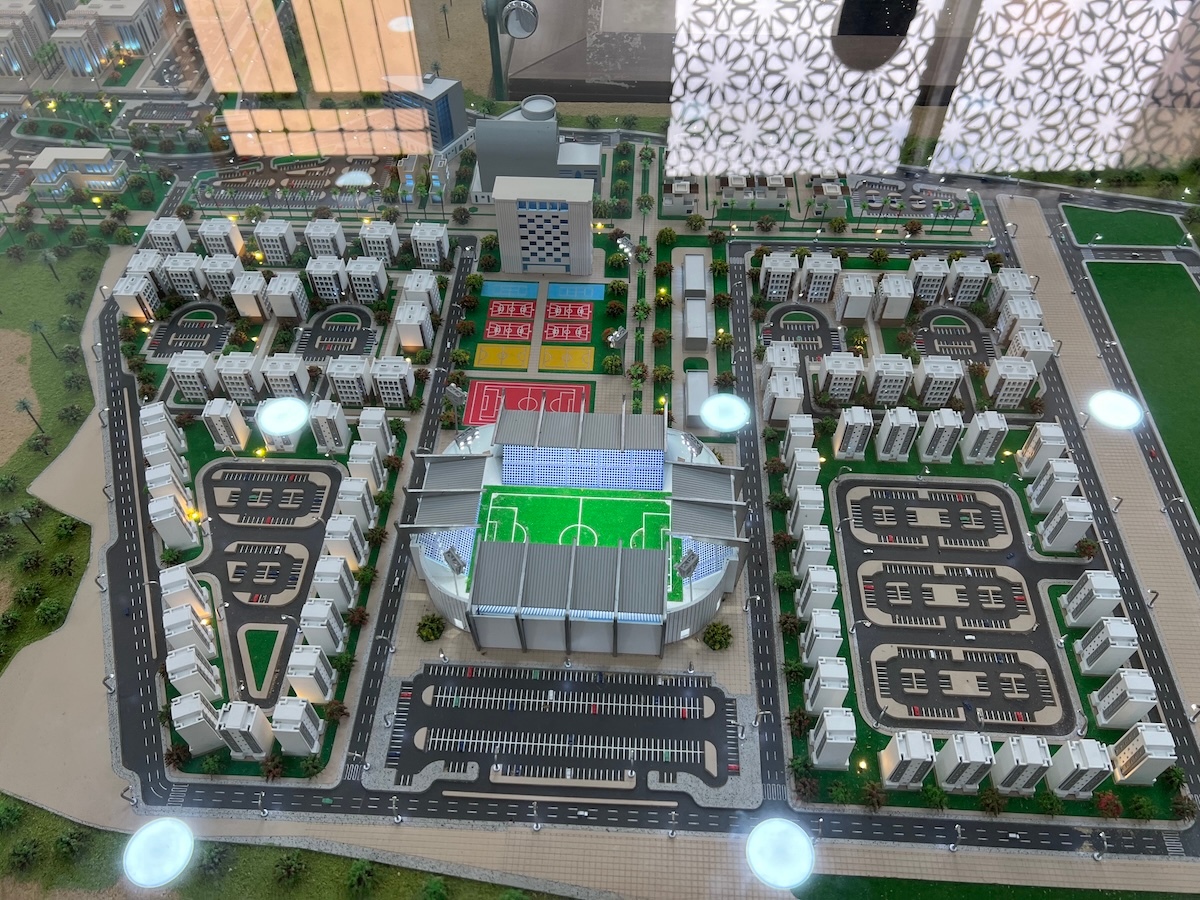
Its managers are in the process of looking for a company to build the extension and would like it to be Spanish, the university's president, Mussa R.A. Saad, told a group of journalists.
They would also like to teach Spanish. “We are ready to open Spanish classes and we would like to create student exchanges with Spain through agreements with universities,” he says.
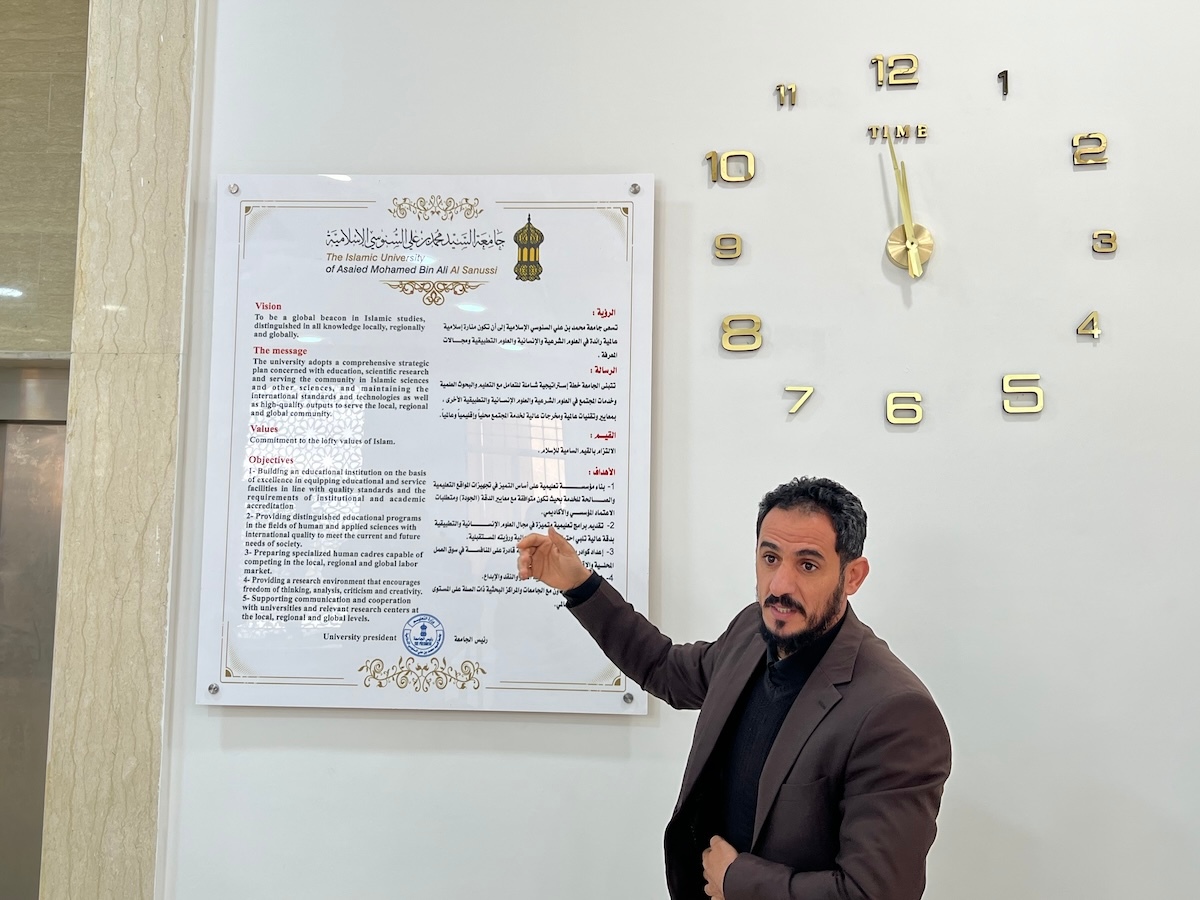
The faculties with the most students are the sciences, such as medicine, whose chairman of the board of directors, Gaith Al-Sulaimani, also calls for “investors to come, we need them, as well as cooperation between universities.”








